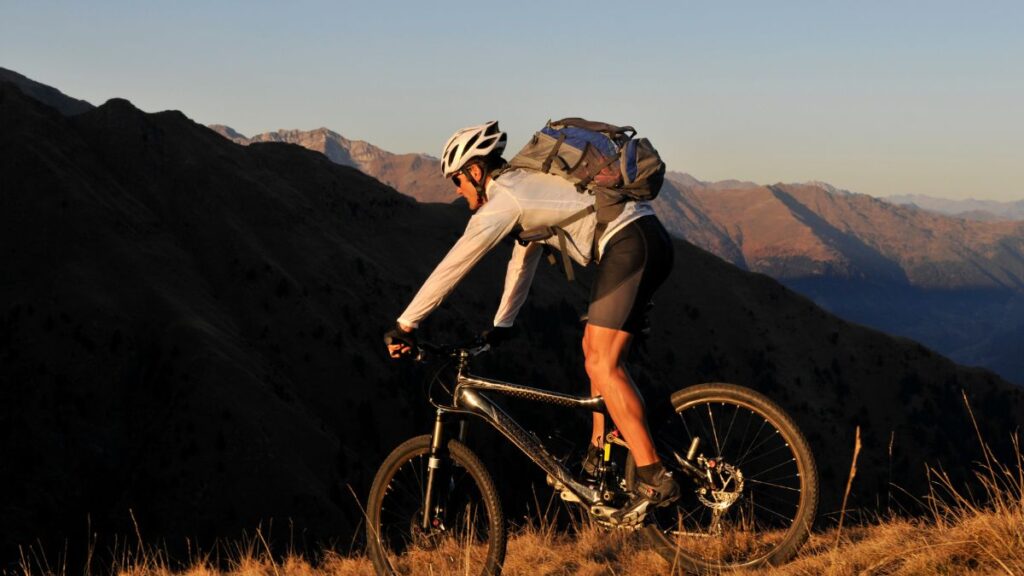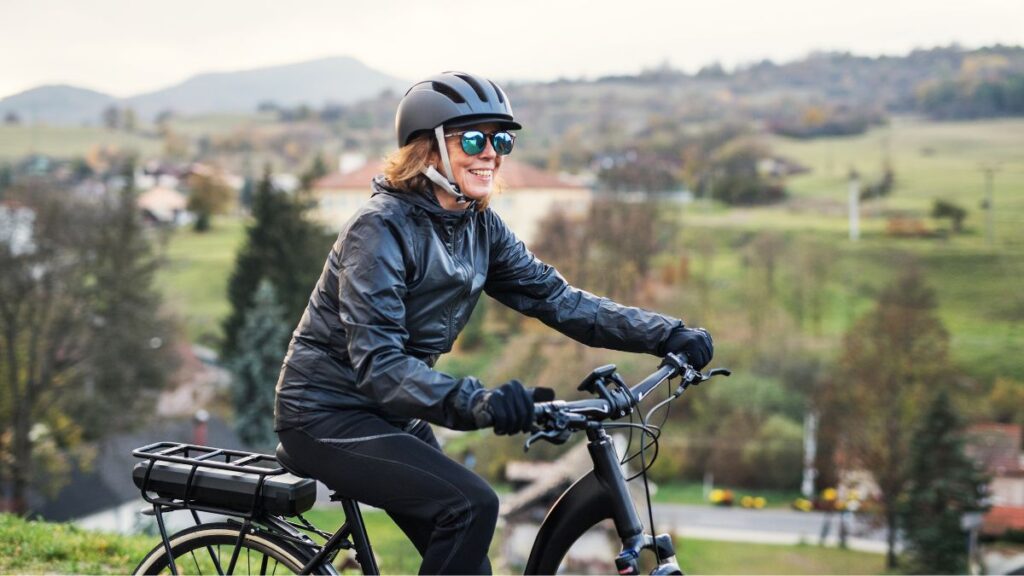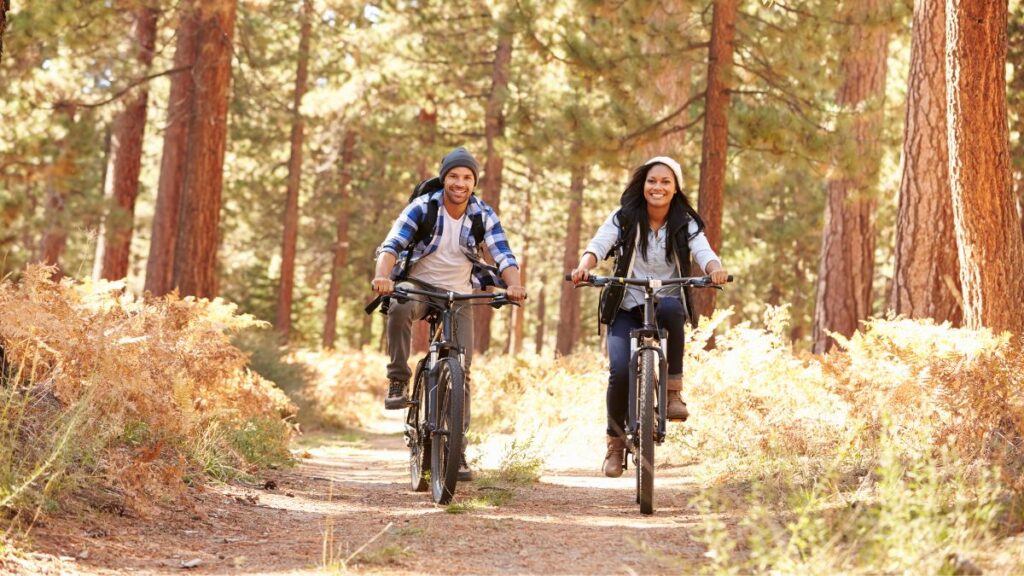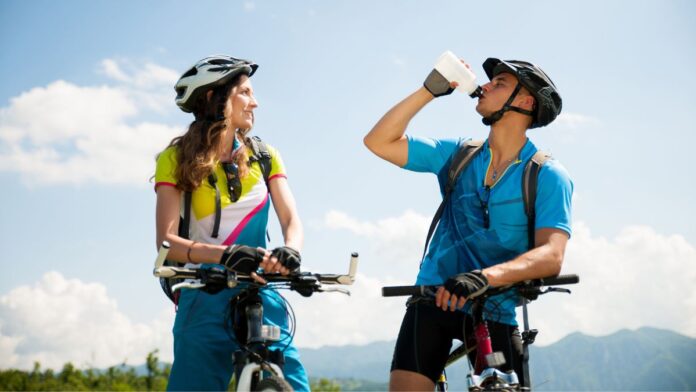Our current lifestyle generally requires that we spend a considerable amount of our time sitting in a chair. This could be from a deskbound job to us being just a wee bit lazy. As a result, many of us started going to the gym, cycling or practising some kind of sport to compensate for a predominantly sedentary lifestyle. This is where we think a cycling holiday hits the right balance for us all.
This has changed not only the way we live our daily life but also what we expect from our holidays.
READ MORE: Tips for planning a road trip in South Africa for the ultimate adventure
The coronavirus pandemic also encouraged many of us to have a healthier and more active lifestyle. Even though the restrictions have been lifted and the pandemic is over, the UK’s love of cycling has only grown. In England, approximately 6.5 million people participated in cycling, either for sport, leisure, or travel.
And even as people are going on holiday, they’re looking to stay on top of their physical health. Many choose adventure holidays like cycling tours, where you can explore new places while exploring the outdoors.
Here are a few of our top tips to keep in mind when you’re thinking of taking your bike on holiday:
Plan for your abilities

There are plenty of great destinations for cycling holidays, both at home and abroad, but you need to choose a country that matches your abilities. Going on a bike tour that is too advanced could result in overexertion and being unable to fully enjoy your holiday. Equally, a beginner’s trail when you’re experienced may not challenge you enough as more difficult terrains would.
If you are looking for some routes close to home, the Cotswolds offer wonderful views, with the opportunity of resting in picturesque villages like Broadway or Bourton-on-the-Water. The Welsh coast also offers amazing coastal routes that will take you through the Gower Area of Outstanding Natural Beauty.
Pack smart

You’re not in control of the weather, no matter how much planning is involved. That is why it’s important to pack everything you might need to cycle during adverse weather conditions. A few useful accessories include arm and leg warmers, along with a water- and wind-proof jacket to keep you warm during cold and wet conditions.
In warmer climates, breathable clothing that you can stay comfortable in is a good idea. Also, sun cream and shades will prevent sunburn and sun from getting into your eyes.
When you are going bikepacking, however, you aren’t only packing for yourself, you also have to consider what your bike could need. Inner tubes and patches will be essential to fix punctures, and you’ll need tyre levers and a mini pump as well.
Safety essentials

Even though you’re off having the time of your life, it’s important to make sure that you’ve packed all the safety essentials. Helmets are a top priority, even when you’re visiting a country like the Netherlands where it is not mandatory to do so. Equipment like reflective jackets, water bottles, and sunscreen can keep you comfortable and lower any potential risks on the road.
It’s also good practice to pack a first aid kit when bikepacking. Cuts and bruises are the most common types of injuries you’ll have to deal with. You can pack antiseptic wipes, waterproof plasters, bandages of different sizes and surgical tape to deal with these injuries. Other equipment you might need are a small pair of scissors, hand sanitiser and tweezers. In addition, if you are travelling to humid climates you might want to pack insect repellent.
Panniers, seat packs and handlebar bags

Panniers are one of the most controversial pieces of equipment in bikepacking. While many think that panniers are simply not cool because they are too bulky, a lot of people see the advantages of having large bags on their wheels.
One of the main arguments against panniers is that with a lot of space at their disposal, people will tend to overpack, carrying more weight than they need. Alternatively, people can opt for a seat pack and a handlebar bag, considerably smaller but closer to the modern bikepacking ideal.
READ MORE: Where to find the best cycling in New Zealand during Autumn and Spring
Record your journey
The most important part of your cycling holiday is making memories that will last a lifetime. Cameras allow you to record the best moments of your holidays and capture wonderful views. There are many cameras that you can invest in, the most famous being Go Pros, which can be mounted onto your helmet to catch the highlights of your trip from your perspective.
Taking a camera on the journey also adds an extra layer of security to your holiday. If you were to experience an accident while you are away, a recording of the accident could help to prove that the accident was not your fault.
Any cycling holiday tips for us?
We’d love to hear from you, so if you have any tips or experiences you would like to share with us, please leave us a comment.

